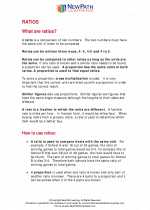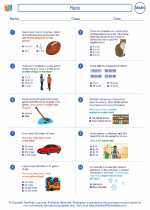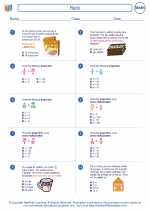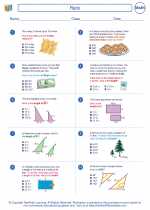Ratio -> comparison
Comparison
Comparison is the process of determining the similarities and differences between two or more objects, numbers, or quantities. In mathematics, comparison is often used to compare the value of numbers, fractions, decimals, and percentages.
Methods of Comparison
There are several methods to compare numbers and quantities:
- Using the greater than (>), less than (<), or equal to (=) symbols to compare two numbers. For example, 5 > 3, 7 < 10, 4 = 4.
- Using the concept of ordering. Numbers can be ordered from least to greatest or greatest to least.
- Using visualization tools such as number lines or bar models to help compare quantities.
Comparing Fractions
When comparing fractions, it's important to have a common denominator. If the denominators are the same, the fraction with the greater numerator is larger. If the denominators are different, the fractions can be compared by finding a common denominator and then comparing the numerators.
Comparing Decimals and Percentages
Decimals and percentages can be compared by looking at their numerical values. For decimals, the number with more decimal places is greater. For percentages, their numerical values can be directly compared, keeping in mind that percentages are always out of 100.
Study Guide
Here are some key points to remember when studying comparison:
- Understand the symbols for comparison: >, <, =.
- Learn how to order numbers from least to greatest and greatest to least.
- Practice comparing fractions with common denominators and different denominators.
- Compare decimals based on the number of decimal places.
- Remember that percentages can be directly compared based on their numerical values.
By mastering the skill of comparison, you'll be able to make informed decisions and analyze numerical information more effectively.
.



